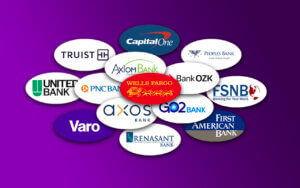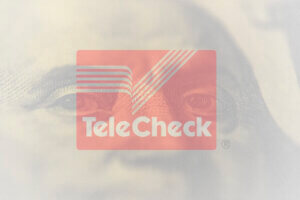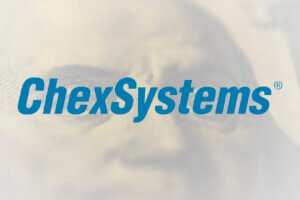TeleCheck is a check verification company that serves over 374,000 businesses across the US by providing check processing, check acceptance, and risk analytics services.
Founded in 1964 and now a part of Fiserv Inc., this consumer reporting agency helps businesses reduce fraud and consumers avoid identity theft.
TeleCheck ensures smoother, safer check transactions for both the issuer (check writer) and receiver (merchants and banks) by verifying electronic and paper checks, processing transactions efficiently, and analyzing risks.
What Are Consumer Reporting Agencies (CRAs)?
Consumer Reporting Agencies (CRAs) help banks and credit unions assess creditworthiness for approving accounts, granting loans and credit cards, or accepting checks. The following are the main CRAs in each of these three categories.
CRAs that specialize in check verification:
- TeleCheck
- Certegy Check Services
- Shared Check Authorization Network (SCAN)
CRAs that specialize in checking and savings account history:
- ChexSystems
- Early Warning Services (EWS)
- Cross Check
CRAs that specialize in credit history (credit bureaus):
- Experian
- Equifax
- TransUnion
How Does TeleCheck Work?
TeleCheck helps businesses decide whether to accept a check or not. But how?
They do this by analyzing their vast national databases of past transactions, identifying patterns in fraudulent checks, and checking for unpaid debts linked to the check writer reported by other merchants.
Here’s how it works:
- Present your check: The merchant swipes it through a secure TeleCheck system.
- Authorize the transaction: You sign a receipt, like with a credit card.
- TeleCheck takes action:
Debt verification: They check their database for unpaid debts linked to you.
Risk decisioning: They compare your check to known fraud patterns.
- Decision time: Based on the results, TeleCheck approves or declines the transaction.
Note: A lack of approval doesn’t necessarily mean your check is bad, but it could indicate TeleCheck lacks sufficient information or detects potential risk factors like unpaid debts.
If TeleCheck approves your check, the merchant/retailer cashes it, and funds get withdrawn within 1-2 business days. The withdrawal appears in your statement as a debit transaction, with details like check number, amount, and location for easy tracking.
How does it benefit you, the consumer? Faster approvals and peace of mind knowing your check is less likely to be fraudulent. Their advanced verification also helps you avoid any identity theft in your name.
What’s in it for businesses and merchants? Reduced risk of bad debts associated with bad checks and frauds. Also, customers are happier thanks to smoother transactions.
How Does TeleCheck Develop Its Risk Profiles?
TeleCheck builds complex risk profiles by analyzing hundreds of variables to predict potential check fraud. The main fraud indicators considered are:
- Fraudster preferences: What types of goods and services do fraudsters typically target?
- High-risk industries: Which sectors and businesses attract more fraudulent activity?
- Fraudster behavior: How quickly do fraudsters typically cash checks?
- Spending patterns: What are the typical spending amounts associated with fraudulent checks?
What Types of Checks Aren’t Supported by TeleCheck?
While TeleCheck handles most checks through Electronic Check Acceptance (ECA), it doesn’t offer verification and risk analysis for certain types, including payroll, line-of-credit, money orders, brokerage, social security, and federal checks.
Why Does TeleCheck Decline My Checks?
Here’s a simpler way to understand the reasons why TeleCheck might decline a check:
TeleCheck doesn’t tell stores whether your check is good or bad, but they might decline it for three main reasons:
- Unpaid debts: If you have outstanding debts, TeleCheck may flag them and decline your check. They can tell you the details of these debts if you ask.
- Risk factors: TeleCheck uses complex models to assess bad check risk. These models consider hundreds of variables, and different stores may have different levels of caution built in. If your check triggers enough red flags in the model, it might be declined.
- Lack of information: Sometimes, TeleCheck doesn’t have enough information about you or your check to approve it.
Note: TeleCheck focuses on check-specific risks, not credit scores. So, even with excellent credit, your check could be declined due to other risk factors.
What Are TeleCheck Codes?
TeleCheck decline codes are identifiers used to explain why your check was declined. These codes provide clues about the specific reason behind the denial, helping you understand the issue.
Two common decline codes are:
- Code 3: This often indicates that the account associated with your check is unfamiliar to TeleCheck, possibly due to limited or no prior check activity.
- Code 4: This typically suggests a risk factor was detected, raising concerns about the check’s legitimacy.
Note: TeleCheck operates independently of your bank balance. Their analysis focuses on identifying potential risks based on information in their system and statistical comparisons to past checks. This means that even with sufficient funds, your check might raise red flags due to factors beyond your account balance.
How To Improve Check Acceptance Chances With TeleCheck?
- Update your information.
TeleCheck verifies information to assess check risk. By providing and verifying the following details, you can strengthen your file and improve future approval chances:
- Decline Record Number: Found on your denial receipt, it helps TeleCheck locate your record.
- Driver’s License: State and number verify your identity.
- Bank Routing Numbers: Printed on your check, they confirm account validity.
- Social Security Number (Optional): Only if referred by a financial institution.
Note: TeleCheck might request additional information for further verification.
- Dispute inaccuracies.
If updating your information in their database doesn’t prevent your checks from being declined, you can request your consumer file to check for errors and initiate a dispute.
How to Request your Telecheck consumer file?
The Fair Credit Reporting Act (FCRA) grants you free access to your Telecheck report once a year, just like any credit report. Here’s how to claim it:
Phone: Dial +1 (800) 366-2425, verify your identity, and request your report.
Mail: Send a request letter for the consumer file with your name, phone number, driver’s license copy, social security number, and voided check copy to:
TeleCheck Services, Inc.
Attention: Consumer Resolution Services
P. O. Box 6806
Hagerstown, MD 21741-6806
Online: Visit this request web page, fill out the online form, and submit it. Telecheck will verify your information and examine the accuracy of your data. This process takes up to 30 days, after which you’ll receive a mailed notification with the results.
What you can dispute:
- Electronically posted items: This covers transactions that appear on your bank statement and were processed through TeleCheck.
- Forged, counterfeit, lost, or stolen checks: You can report these issues if you believe someone has tampered with your check or it has been lost/stolen.
- Identity theft: If you think someone has used your identity to open accounts or write fraudulent checks, you can report it here.
How to Dispute TeleCheck?
For electronically posted items, download this PDF form, fill it out with details about the transaction you dispute, and return it with supporting documentation (e.g., bank statements and receipts). For other disputes, fill out the online form on this page, provide as much detail as possible about the issue, and hit submit.
The PDF details how to fill out a Notice of Error form to report mistakes like duplicate charges, missing goods, or unauthorized transactions. It covers what info to include and gives examples.
For any questions, you can contact TeleCheck at 1-800-346-6223.
How Does the Telecheck Dispute Process Work?
Here’s a concise version of the Telecheck dispute process:
- Find errors: Scrutinize your report for inaccuracies like wrong information, misidentified accounts, or outdated negatives.
- Report it: Initiate a dispute online, by mail, or by calling 1-800-346-6223.
- Investigation (30-45 days): Telecheck analyzes your claims and gathers information.
- Result via mail: Get a written notification confirming errors, outlining corrections, and explaining any discrepancies.
- Optional: If unsatisfied, request a re-investigation or file a CFPB complaint.
Beyond TeleCheck: Second Chances
While TeleCheck can help businesses make informed decisions about accepting checks, it is just one piece of the puzzle.
Financial journeys are unique, and if past challenges, like declined checks, have impacted your banking history, know that you have options such as second-chance banking for a fresh start.
These institutions offer specialized services to help individuals get back on track financially by looking past blemishes in their banking history. Read our article, Best Second Chance Bank Accounts, to learn more.







